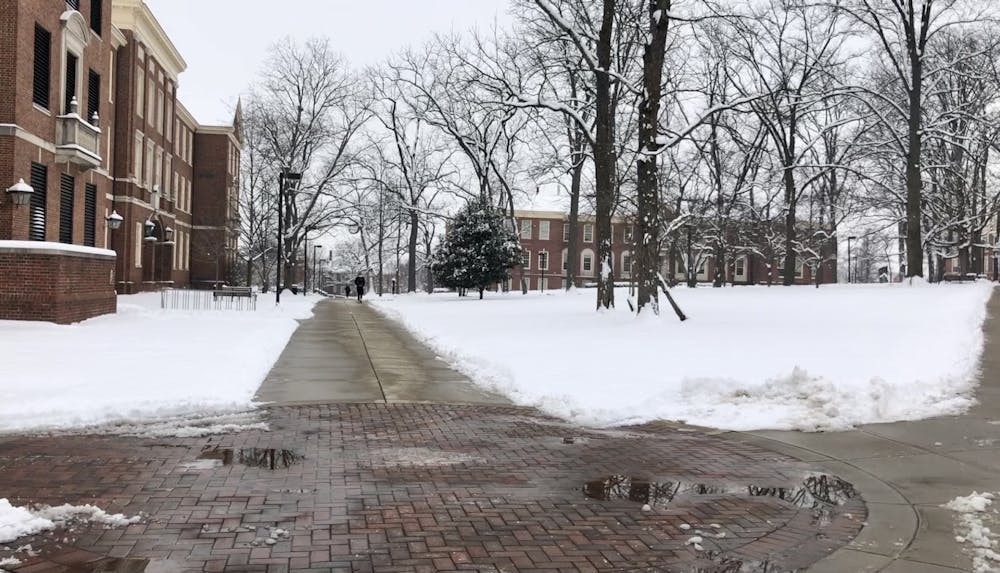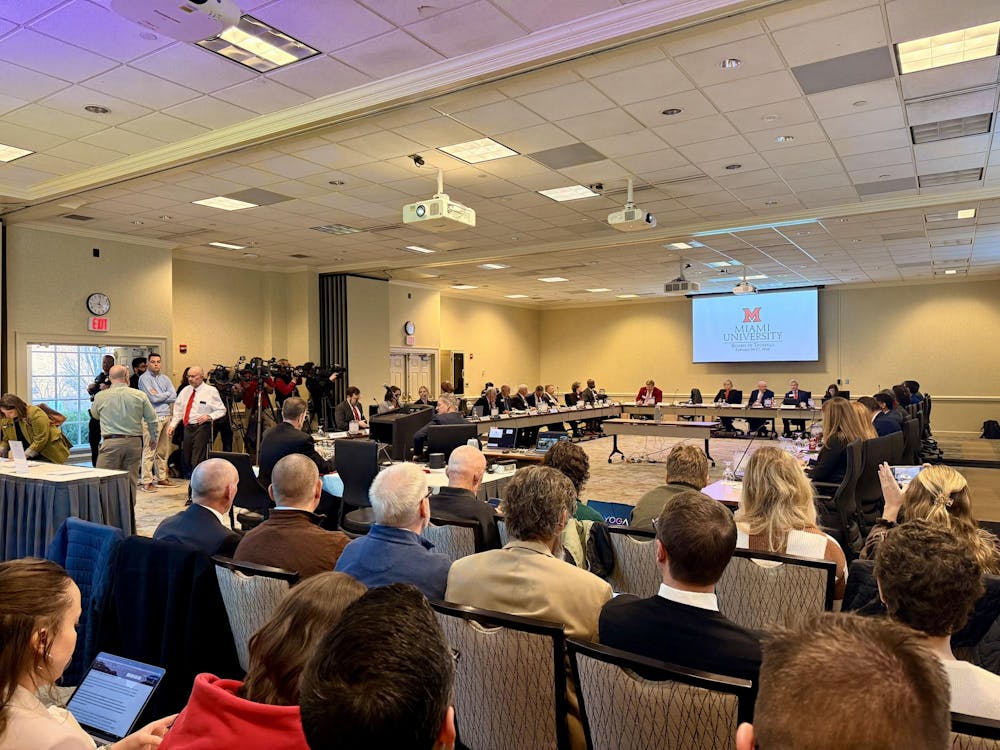Most students, no matter what age, get excited about snow days and being able to miss a day’s worth of class.
However, after almost a year of remote learning, a question emerges — will snow days continue to exist, or will they be replaced by online alternatives?
Edward Theroux, superintendent of Talawanda High School, explains that as of right now, the district will still give its students the five snow or calamity days allowed in Ohio.
“We believe it is important for our children to have the opportunity to play in the snow, go outside or enjoy the day off,” Theroux said.
Theroux also acknowledged the flexibility recent technology has provided. Hence, if the five days are ever used up, the school is prepared to go online and have asynchronous learning in place of giving students the day off.
“[Asynchronous] learning will look different than a traditional day,” Theroux said. “Zoom, Google platforms and teacher-made curriculum may be a part of that learning experience.”
Talawanda schools have decided to do both. This keeps the satisfaction of a day off for the staff and students, while also taking advantage of the online-learning resources used during the pandemic.
Grade schools automatically account for five days off, but what are universities, Miami in particular, going to do? Will they allow days off or will they transfer to an online setting?
According to Miami’s website, the campus will always be either fully open, open with some classes canceled or completely closed.
When the campus is open, everything runs normally. When the campus is closed, no events are to take place and no one should come in except for the weather emergency staff. If the campus is open but classes are canceled, all staff are still expected to work.
However, with the emergence of online learning, classes can still go on as scheduled whether the campus is closed or not.
On Tuesday, Feb. 9, the campus closed for two hours in the morning, which seemed like a precursor to an actual snow day where professors and administrators had to choose if and how they were going to make adjustments to class delivery.
Enjoy what you're reading?
Signup for our newsletter
During these two hours, Andrew Casper, an associate professor of art history, held an online class that normally is in person.
He said it was easy to transfer the lesson from in-person to online because of his previous experience this past year.
“There was already a Zoom link set up in advance,” Casper said. “It really was just a matter of doing the same thing that I do, but just home instead of in the classroom.”
One of his students, Josh Uy, a first-year physics major, said it was an easy transition due to Casper’s effective communication.
“My professor delivered in a timely manner,” said Uy. “He emailed the class three hours before it starts.”
For Casper, despite his love of being in the classroom to teach, the virtual option for snow days brings relief. It eliminates the hurdle of finding daycare for his young daughter when she is also staying at home due to a snow day.
“In the past, when we didn’t really have this option, it was always a little nerve wracking not knowing when a disruption to my daughter’s school was going to make things really complicated,” Capser said.
Previously, if this kind of problem arose, the only option would have been to cancel class.
He said a few snow days might be to the students’ liking, but overall, it is not fair to them because they are paying to learn the material, and a snow day would hinder that experience.
“What we do on one day is dependent on what we learn the last day,” Casper said. “But if we don’t learn anything the last day, then you have to catch up or combine two classes.”
Not only does the ease of online learning benefit him and his students, but it also frees up his time. He explained that it takes him more time to try figuring out how to make up for a canceled class than to actually have the class.
“I don’t teach for that hour and a half,” Casper said. “But I take up way more time trying to figure out what to do to make up for it.”
Casper finds himself wondering if online learning will take hold. As much as he wants to be fully in person as soon as possible, he also sees the benefits of this virtual option, especially when his child has a snow day and the university does not.
Sara Baxter, an English grad student educator, also weighed in on whether she would hold class virtually or cancel it on a snow day.
“I would ask the students what they think,” Baxter said. “I don’t want them to miss out.”
Canceling class would throw off the schedule, but she understands a day 0ff is something students look forward to.
However, Baxter believes wellness days might be a good substitute for these anticipated days.
She predicts that in the long run, snow days will no longer exist, but the pandemic has proved technology can be a viable replacement.
“There is definitely going to be a lot more Zoom in our lives in our near future, even after [the pandemic] is over,” Baxter said. “There are definite benefits to that, and there are definite down sides to that.”
With the idea that snow days might cease to exist, Baxter expressed disappointment for losing these snow days but finds relief that there is a back up plan for the disruptions.
“As much as I like days off, I’m in charge, and I have to make sure that everything runs smoothly,” Baxter said.
Students are also torn between the letdown of not having a day off or the supportive fallback of online learning.
Harrison Baker, a first-year computer science major, said the online option just makes sense.
“If we don’t need to go school, I don’t see why we need to cancel school for snow days,” Baker said.
Meanwhile, Josh Rudnick, a junior in high school who is part of Miami’s College Credit Plus program, hates the idea of no more snow days.
“I want to keep the feeling of when you’re growing up and look out the window and you see snow and your parents tell you that you can go back to sleep,” Rudnick said. “They should definitely keep that.”
Online schooling has its advantages and disadvantages, but the future of this virtual lifestyle people have become accustomed to is still unsure, especially in regard to snow days – they have the potential to be vastly transformed or to completely vanish.




